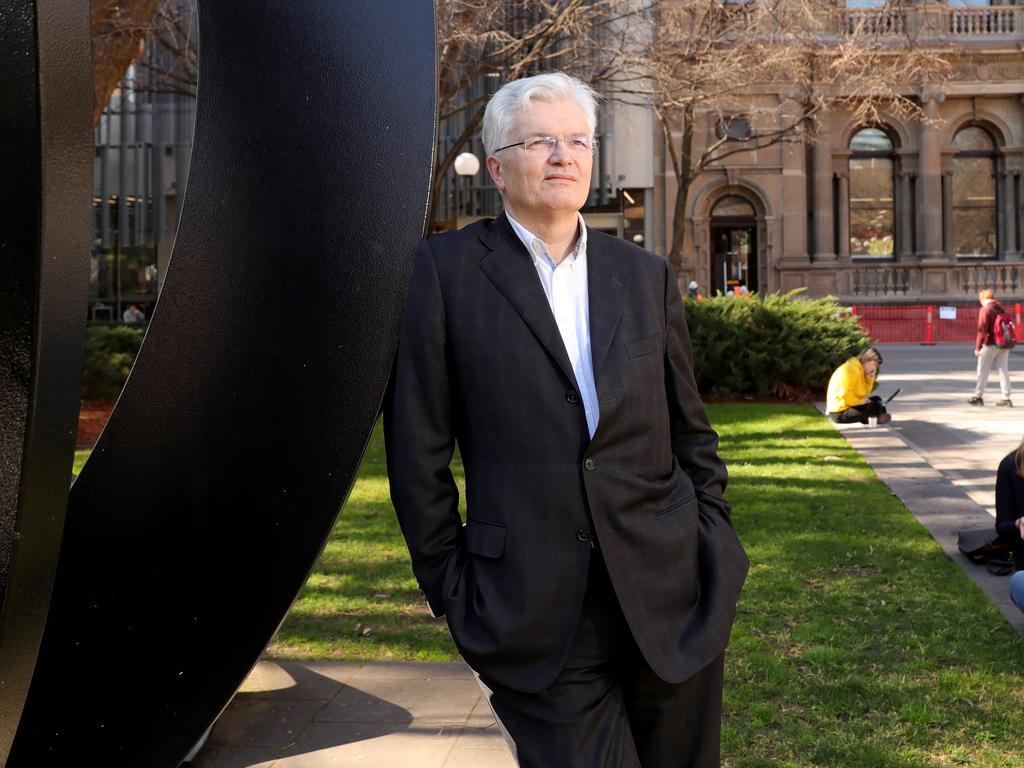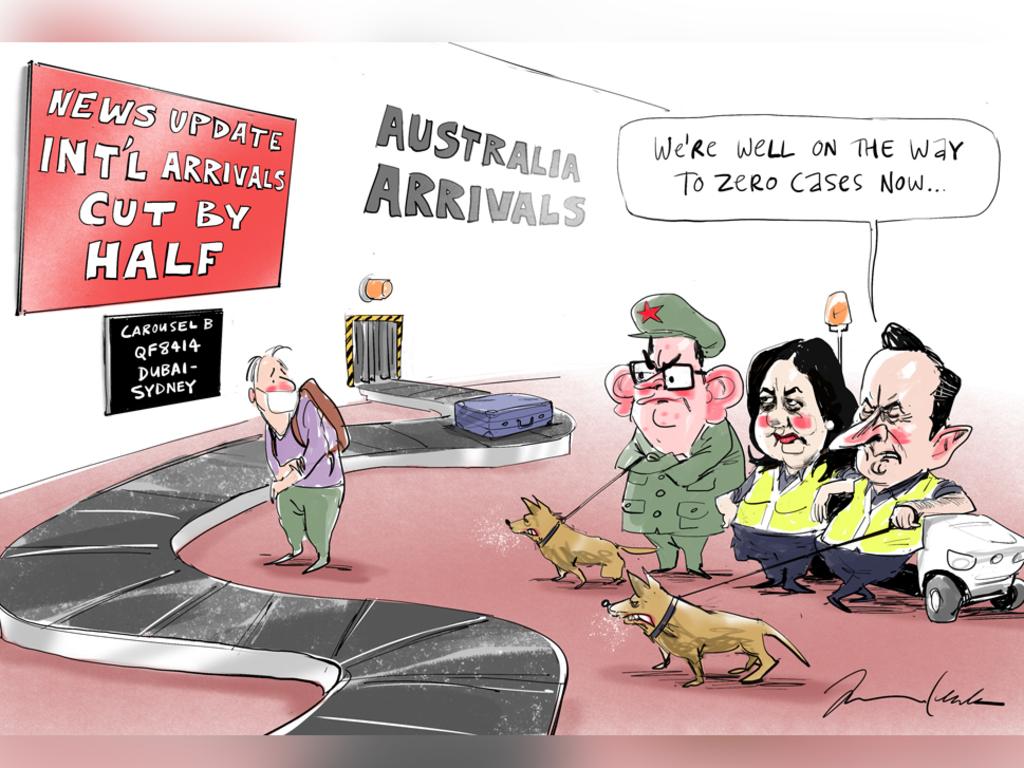Vax avoidance: why Scott Morrison and Anthony Albanese face the same problem


Yet some journalists of the left use the issue to express open hostility to the politics of ordinary Australians, while on the right, some excuse the inexcusable under the shield of personal liberty.
If tens of thousands march against pandemic restrictions in Melbourne after the world’s longest lockdown they are “a hodgepodge of anti-vaxxers, conspiracy theorists and far right loons,” as Michael Koziol wrote for The Sydney Morning Herald online last Tuesday. The truth is Australians are much smarter than reporters think.
After months of media hyping of rare blood clots from the AstraZeneca Covid-19 vaccine, Australia looks set to achieve world-beating 95 per cent vaccinations rates.
ABC health editor Norman Swan – who admitted to Koziol in an interview in May that he “probably did cause some vaccine hesitancy’’ – underestimated just how well vaccination would be accepted and how well it would work to curb Delta outbreaks in Sydney and Melbourne this year.
Many in the media did not foresee how Australians would flock to get the jab as soon as the threat of Covid became real. Yet Australia is a highly vaccinated nation and has had compulsory vaccination programs, including for infants and kindergarten age children, for decades.
Nick Coatsworth – former deputy chief medical officer and a tough critic of Dr Swan’s mid-year claim that the NSW government was conducting a vaccination experiment on its citizens – reckons there’s a lot of politics in much of the reporting of pandemic and vaccination issues.
It is indeed odd that coverage of anti-vaxxer misinformation is so often about the right of politics. The origins of the anti-vax movement here are not on the right, even if right-wing populists such as Clive Palmer’s United Australia Party, its Sydney federal member Craig Kelly and One Nation’s Pauline Hanson and Malcolm Roberts are keen to harvest the support of vaccine hesitant voters at the upcoming federal election.

Historically, the home of the anti-vax movement has been the hippy playground around Byron Bay, in northern NSW. Its voters have been more likely to support the Greens than conservative independents.
The anti-vax peak body, the Australian Vaccination-risks Network, based in Bangalow, in Byron Shire, even quotes approvingly the words of Greens political founder and pro-vaccine GP Bob Brown from the Senate in 1997: “There is very much contradictory evidence and debate, even in scientific and medical circles, about vaccination.”
While some reporters are just youthful dupes, older political journalists on the left know what’s going on: Labor premiers and the federal Opposition are desperate to destroy the government’s standing with swinging voters over the handling of the pandemic and vaccination rollout. It’s why the ABC and Guardian have sounded like the “#I Stand With Dan” Twitter crowd through Victoria’s six lockdowns.
Now that the vaccine rollout is a success, Labor aims to splinter the conservative vote by making it seem Morrison is playing footsies with the anti-vax crowd. You won’t find too many stories in the left media about how dangerous the Greens-Left Age of Aquarius anti-vax movement is for the Labor base. Or much focus on the union movement’s opposition to vaccine mandates.
Both sides have the same problem. Morrison needs to ensure he gets as many preferences as possible from populists on the right while Labor leader Anthony Albanese can’t say too much about left-wing anti-vaxxers because he needs Greens preferences. It is too cynical for mainstream journalists to pretend hundreds of thousands of marchers in Australia’s capital cities are all anti-vaxxers. Most are just ordinary Australians fed up with lockdowns.
As Dr Coatsworth, now an infectious diseases expert at Canberra Hospital and a senior lecturer in medicine at the ANU, told this column last week: “Not everyone demonstrating against lockdowns is a right-wing anti-vaxxer. Every time I hear that I get more disenchanted with the progressive left. It’s classic them and us. Let’s paint a political picture and let’s not look for the nuance in this. Of course people are sick of their lives being disrupted.”

Dr Coatsworth is also sceptical about the political motivations of some in the medical profession.
“How can the same people who hyped the very rare risks of AstraZeneca over its proven benefits for the bulk of the population now be campaigning for vaccination of very young children for whom the risks of heart inflammation are much higher than the risks of blood clotting were? This is politics now, not medicine.” Dr Coatsworth is referring to evidence of heart inflammation from MRNA vaccines in the young.
This column on March 22 urged journalists wanting to understand the anti-vax movement to look at a couple of media examples: “Check out Jane Hansen’s documentary, Big Shots: Anti-Vaxxers Exposed, on Sky News. Read the history of the (anti-vax) conspiracy theory which goes back to an American study published in The Lancet in 1978. The affair was covered by journalist Brian Deer in a series in the British Medical Journal in 2010 and 2011, including the role of a group of lawyers who were seeking evidence for a claim the measles, mumps and rubella (MMR) vaccine causes autism.”
That’s something more in the media could usefully focus on. As Jane Hansen told this column last week, the US leaders of the anti-vax movement are motivated by simple profit.
“There is a huge anti-vaccine business in the US. The Center for Countering Digital Hate has found that 65 per cent of the vaccine misinformation during the pandemic has come from the ‘disinformation dozen’. They make money out of this conspiracy theory.” The Dozen includes environmental lawyer and anti-vax advocate Robert Kennedy Jnr, internet dietary supplements marketer Joseph Mercola and proponents of alternative medicine treatments Ty and Charlene Bollinger.
The media right should know better than using libertarian arguments to criticise vaccine mandates and vaccination passports, which most Australians support. As the reader comments on pieces published in this newspaper show, Australians have little time for ideology. They believe surrendering some personal freedoms is a small price for wider public health.
Vaccine passports are as old as world travel. Most older travellers remember their compulsory smallpox shot before their first overseas trip. Many have the yellow fever passport required to return to Australia from South America.
Conservative commentators should have learned from the latest Queensland and WA elections that voters prefer state border lockdowns to catching Covid. They should admit much of the world’s vaccination effort is down to the ultimate conservative populist, former US president Donald Trump, who tipped US$2bn into his Operation Warp Speed vaccine program. Trump’s fanning of vaccine hesitancy this year can only have been for venal political gain.







Some issues should be beyond the media’s culture wars: vaccination for one.